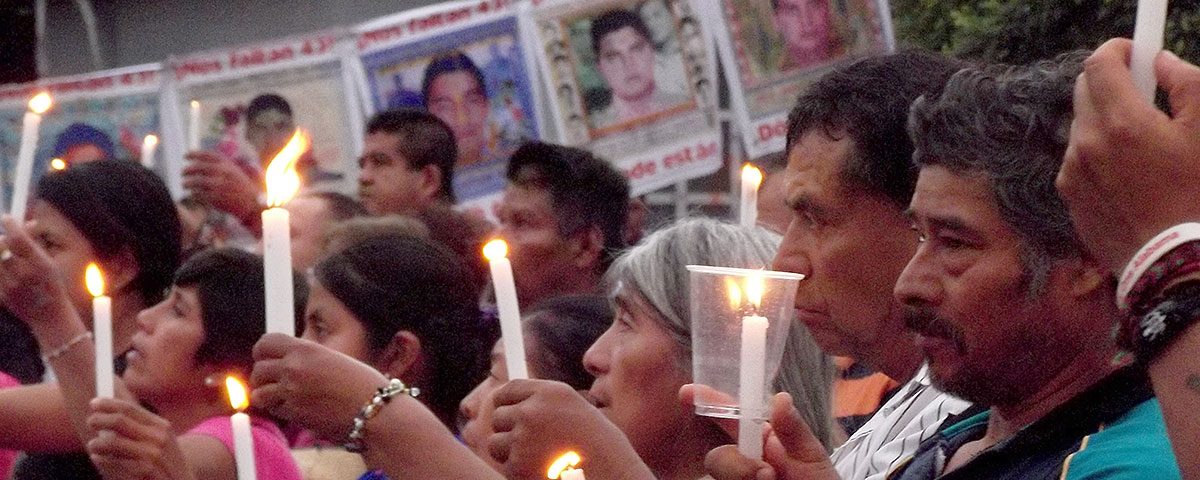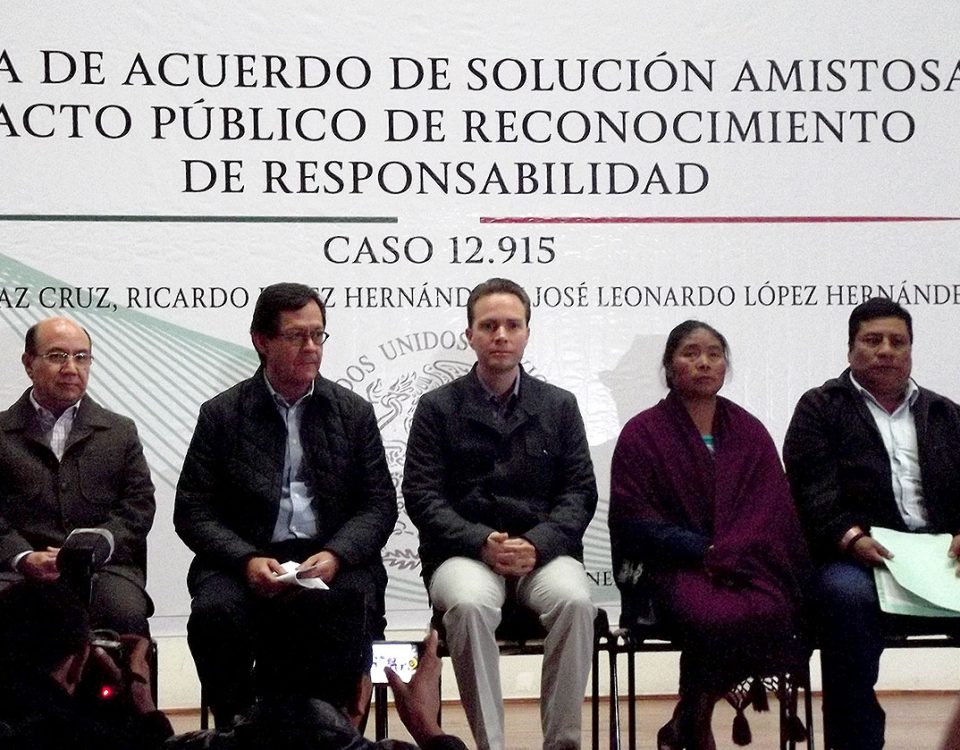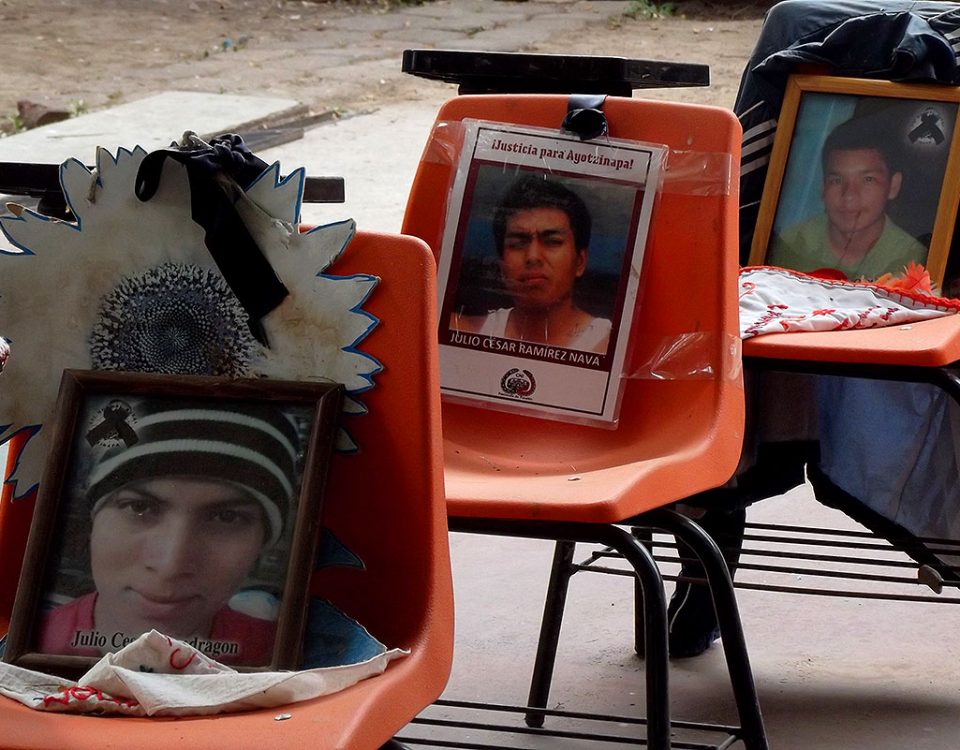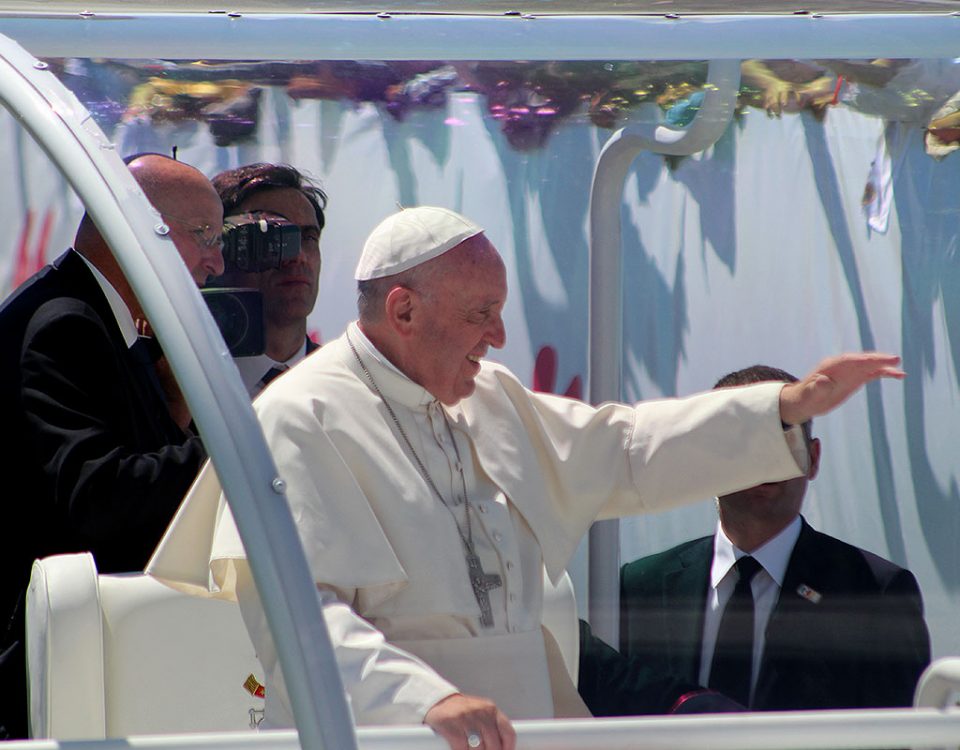
FOCUS: WHERE ARE THEY? The Situation of Forced Disappearance in Mexico
02/06/2016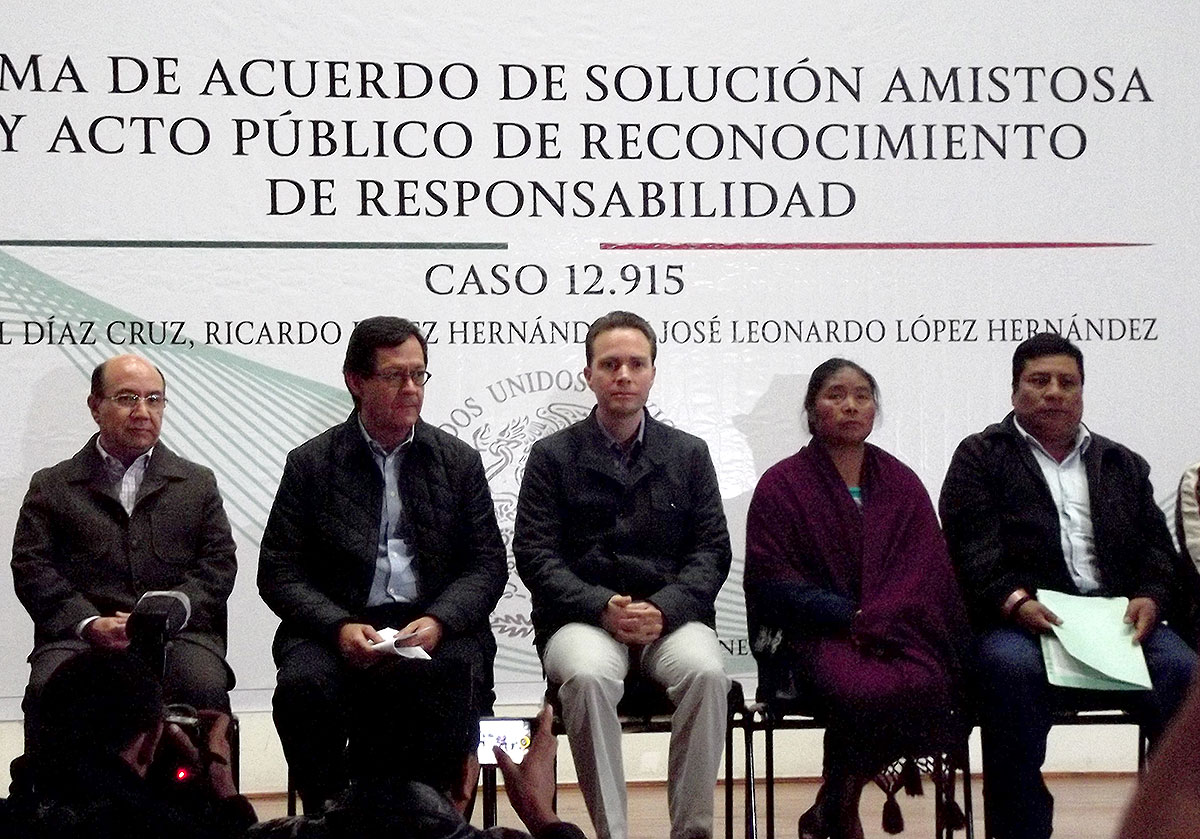
SIPAZ Activities (Beginning of January to end of March 2016)
02/06/2016“They tell us we are human rights defenders but we are only mothers looking for our children, families seeking justice, seeking truth.”
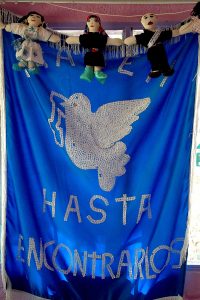
Until we find them/Until they are found. Canvas elaborated by families of missing persons in the “Dirty War” © SIPAZ
Following news of the arrest of Rosendo Radilla in 1974, his family began to search for him immediately. His wife and daughters combed government offices, prisons and hospitals. When they did not find him, they made public complaints, organized marches, meetings and protests as methods of pressure to demand the appearance of Rosendo.
These are common actions on the part of the relatives of the disappeared. The pain from the lack of the person, the uncertainty about their whereabouts and their state of health, added to the lack of effective response from the authorities have motivated the organization of the relatives around the search and the demands for truth and justice. Many families have begun the search of their own accord, a clear case of this being the mothers and fathers of the 43 students disappeared from Iguala or the discovery of hidden mass graves by the relatives of victims in many states of the country.
Currently, there are more than 40 organizations and collectives of disappeared victims’ relatives across Mexico. One of the groups is The Committee of the Other Disappeared from Iguala, Guerrero. Made up of more than 500 families, they carry out weekly search days for hidden graves in the surrounding hills. They share stories in their meetings of how their loved ones went out to work and never came back, of how they were detained at a police checkpoint and that was the last they heard of them, or how armed persons took them from their homes. Later, they equip themselves with picks and spades and they go to the surroundings to dig where there are signs of possible graves. Shortly after the beginning of their activities, the government forbade them to continue digging using the argument that they would alter the sites. Although the families do not dig now, they continue to locate graves and mark them so that the relevant authorities might investigate. Since the foundation in November 2014, they have found more than 90 graves with 132 bodies. They have not been short of threats and harassment for their uncomfortable work, as well as the murder of one of their members, Norma Angelica Bruno, who was killed in February of this year. “Don’t you see the danger?”, one mother of a disappeared victim, a member of The Other Disappeared was asked. “I don’t mind giving my life”, she answered. “I’m willing to give it, to see him again.” According to the Attorney General’s Office (PGR in its Spanish acronym), around 150 hidden graves have been found in national territory.

Mass in Iguala, Guerrero, Mexico, during the caravan of families and companios of Ayotzinapa. March 3, 2016 © SIPAZ
Another paradigmatic struggle on a national level is that of the Radilla family, who presented the case of the disappearance of Rosendo before the Inter-American Court of Human Rights. This ruled, for the first time in history, that the Mexican State was guilty of serious violations of human rights, pointing to the army as being responsible for the disappearance. It also found that that soldiers accused of human rights abuses cannot be tried by court martial, ordering that these cases be tried by regular courts and not in military jurisdiction. This sentence on November 23, 2009, was a success for the movement of forced disappeared victims’ relatives, which put an end to one of the great legal obstacles to investigation and damage reparations which was the secretiveness and inaccessibility of the military courts. Although the Radilla case ruling is still awaiting its total application, some results are beginning to be seen. Currently an member of the Army and five marines are being tried for two cases of forced disappearance, which, although they are almost nothing in comparison to the more than 27,000 persons disappeared in the country, bring “a ray of hope, the hope that they can finally know the truth and receive justice and reparation” to the families, according to AI.
It is also worth highlighting the work of the Movement for Peace and Justice with Dignity and its motto “Estamos hasta la madre” (“We’re angry as hell”) in denouncing the violence unleashed on the population by the war against drug trafficking. Since 2011, this movement has condemned the treatment of victims as “collateral damage” and “unnamed figures”, bringing together thousands of citizens in an organized process of victims who ask for an end to the war. One of the most notable achievements of the movement was the enactment of the General Victims Law, which established a framework for victims’ rights and actions to guarantee their protection, attention and damage reparations. Despite of the creation of the Executive Commission for Attention to Victims (CEAV in its Spanish acronym) – an organism to accompany the application of the victims law – few families have benefited from this. Many victims are of the opinion that there are bureaucratic obstacles to the processing of aid for damage reparations, there being only 120 people economically compensated since its creation, as the media outlet Animal Politico affirms.
On another note, a great example of organization of the relatives of disappeared persons is the National Movement for Our Disappeared in Mexico. Recently established, it is an effort at joining more than 60 organizations of relatives of the disappeared and some 40 civil society organizations. After more than 40 years since the creation of the first organizations of relatives of victims of forced disappearance, having overcome certain stigmatization for their struggle, they continue to believe that they will only exert enough pressure for justice to be done in an organized manner. Despite being composed of organizations and collectives with different political stances, it is a key actor in denouncing the consequences of forced disappearance, and also of the gaps and deficiencies of the government in the search, investigation and guaranteeing their rights as victims.
Demands for a Disappearance Law

Press conference of families and companions of the 43 missing students of Ayotzinapa. Iguala, Guerrero, Mexico. March of 2016 © SIPAZ
One of the main demands of the National Movement for Our Disappeared in Mexico is the creation of a General Law for disappearances which regulates the activities of the authorities on three levels – municipal, state and federal – in relation to this problem. Just as the UNO demanded of the Mexican Government, the organizations of victims of disappearance relatives are currently participating in drawing up this law, contributing their experiences “full of suffering but also wisdom”, that become “important lessons” that must be taken in future legislation. Firstly, they demand that the law be in accordance with international human rights treaties; that it orders the immediate and effective search for disappeared persons; that there be registers of the disappearances, of DNA, of unidentified bodies and remains and that it include a true integral reparation for damages. Also, some organizations have spoken in favor of the new law contemplating the complexity of the phenomenon and that it gives responses that go beyond penal sanction, such as prevention, assistance to families or integral reparation measures. They also asked the legislative body “not to repeat the error” they committed when drawing up the victims law of which they said, “it is of no use”. Relatives of disappeared or murdered persons have criticized the excessive bureaucracy to receive indemnities, due to which only 4.5% of the total budget has been used.

For a world without disappearances. Doll elaborated by families of missing persons of the “Dirty War” organized in AFADEM. Atoyac, Guerrero. March of 2016 © SIPAZ
Facing this grave situation of enforced disappearances, the organization of relatives and sympathizers is glimpsed like a light of hope. Families accused of being “upstarts” for searching for their disappeared loved ones, who have often been stigmatized and accused of having connections with organized crime, are those who are allowing us to guess the dimensions of this human rights crisis that Mexico is experiencing. Today their voices in demand for truth and justice are needed to know the whereabouts of the disappeared throughout the country and also for the design of preventive strategies and public policies that manage to stop this tragic phenomenon. As the MPJD declared on its third anniversary, “today we want to sow justice and memory in this Mexico that, wounded by the ineptitude and blindness of the current government, continues with this war. Only with memory and the reconquest of public space for citizens will we manage to overcome fear and paralysis.”

